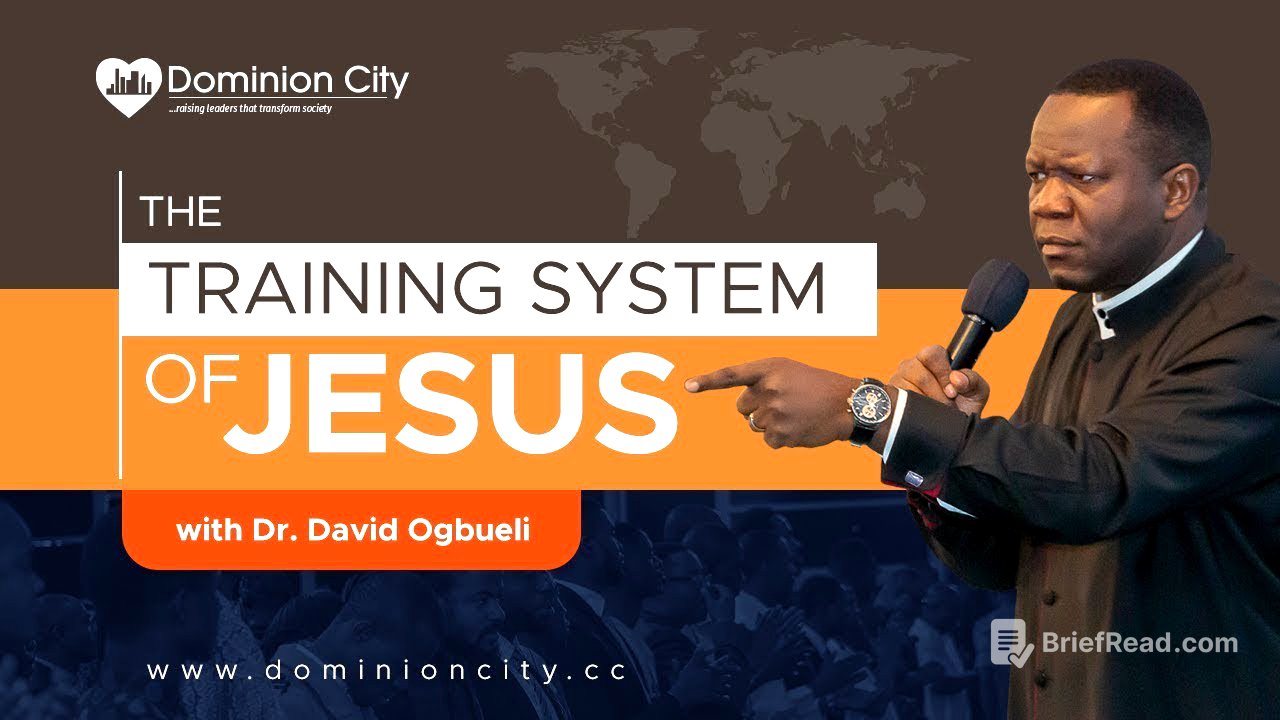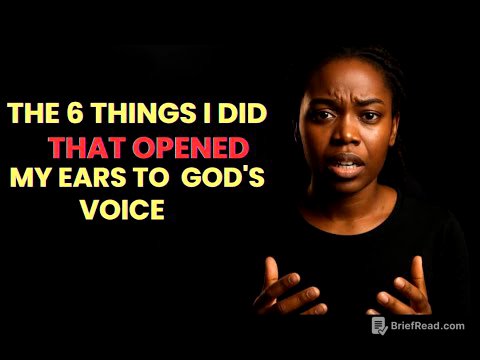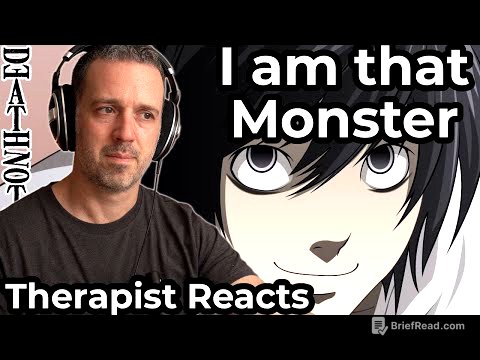TLDR;
This video discusses the importance of "fishing with nets" rather than "fishing with a hook" in the context of evangelism and discipleship. It emphasises reaching entire families, social networks, organisations, and communities instead of focusing on individual conversions. The speaker encourages believers to use their existing relationships and social capital to spread the Gospel and make disciples. The video also touches on the need for the church to adapt its strategies to be persecution-resistant and effective in the last days, advocating for small group ministry and multiple church planting.
- Focus on "fishing with nets" to reach entire groups of people.
- Use existing relationships and social networks to spread the Gospel.
- The church needs to adapt to be persecution-resistant.
- Small group ministry and multiple church planting are key strategies.
Fishing with Nets vs. Fishing with Hook [0:15]
The speaker introduces the concept of "fishing with nets" as a more effective method of evangelism compared to "fishing with a hook." He references Luke chapter 5, where Jesus instructs Simon to let down his net for a draught. Fishing with a hook only catches one fish at a time, while using nets allows for the collection of a whole school of fish. The speaker argues that the church has been primarily using the "hook" method, focusing on individual conversions, which is insufficient for winning cities and nations for Christ.
The Meaning of "Nets" [4:43]
The speaker explains that "nets" represent several key strategies: reaching people in families, social networks, and organisations. Instead of extracting one person, believers should use that individual to reach their entire family, fraternity, club, bank, or company. The goal is to turn each convert into a "harvester" rather than just a "sitter" in the church. Examples from the New Testament, such as the woman of Samaria and Zacchaeus, are used to illustrate how individual conversions can lead to the salvation of entire communities.
Practical Examples and Applications [6:24]
The speaker provides practical examples of how to apply the "nets" strategy. He encourages believers to use events like naming ceremonies, child dedications, housewarmings, and birthdays as opportunities for evangelism. The key is to connect everything to the mission of Christ, inviting friends and social networks to these events and sharing the Gospel. The speaker also highlights examples from the New Testament, such as Cornelius, the Roman jailer, Levi (Matthew), Noah, Joshua, Rahab and Lot, where entire households and communities were saved as a result of reaching key individuals.
The Importance of Family and Community [11:28]
The speaker emphasises that salvation is a family and community affair. He shares his personal experience of leading his entire nuclear and extended family to Christ. The Gospel is meant for families, cities, and nations, and believers should strive to disciple entire communities. He references the stories of Zacchaeus and Levi (Matthew) to illustrate how Jesus focused on reaching entire households and social circles, not just individuals.
Taking Charge in Your Sphere of Influence [15:09]
The speaker challenges those who are already saved to take charge in their companies, offices, workplaces, and schools. He argues that believers are saved to bring their entire network to Christ, discipling everyone in their sphere of influence, including their bosses. He stresses that bosses have an even greater responsibility to disciple their entire organisation.
Old Testament Examples and the Family Business of God [16:02]
The speaker uses Old Testament examples like Noah, Joshua, Abraham, Rahab, and Lot to further illustrate God's focus on saving families and communities. He emphasises that God is in the "family business" and is interested in saving entire groups, cities, and communities. He encourages listeners to break down old paradigms and traditions that limit their understanding of the Gospel.
Multiple Church Planting and Drastic Action [19:25]
The speaker introduces the concept of multiple church planting and saturation, advocating for small groups and cells rather than just one large mega-church. He calls for a drastic action from the church, urging believers to open their houses and start cells in their communities. He criticises the division of the church into separate evangelism and prayer groups, arguing that evangelism should be a joint co-mission and responsibility of every believer.
90-Day Challenge and Modelling Evangelism [22:51]
The speaker issues a 90-day challenge, encouraging leaders to model evangelism by taking the whole church out in groups of two or three every Saturday or Sunday. He suggests covering every street and corner of the city, taking food and clothes to those in need. The goal is to create a new culture and habit of evangelism within the church.
Strategic Intentionality and Influencers [25:01]
The speaker highlights the importance of strategic intentionality in evangelism, referencing the example of the Church Missionary Society in Onitsha, Nigeria, which partnered with influential figures to spread the Gospel. He encourages believers to target influencers in society, such as kings, presidents, generals, family heads, and community leaders, and to pray for them. However, he cautions against exclusively targeting people in authority, emphasising the need to be open to whomever God is opening doors to, even if it's a maid or a commoner.
Balancing Authority and Humility [26:53]
The speaker stresses the importance of balancing the pursuit of influential figures with humility and openness to God's leading. He cautions against exclusively targeting billionaires or kings, emphasising the need to watch out for the "man of peace" whom God has opened their heart to and who is ready to help connect others.
The Urgency of the Times and Last Days Church [28:58]
The speaker emphasises the urgency of the times, reminding listeners that "night is coming when no one can work." He references the lockdowns experienced in Nigeria and other countries, highlighting the importance of small groups and discipleship in maintaining the church during times of crisis. He argues that the sun is setting and night is coming, and believers need to be ready to be the last day's church.
Persecution-Resistant Church and God's Endgame [31:21]
The speaker calls for the building of a last days persecution-resistant church that can survive and thrive even in the midst of strong persecution. He highlights that the early church survived through small groups meeting from house to house. He concludes by stating that discipleship-making movement and small group strategy is God's end-time game and endgame.









